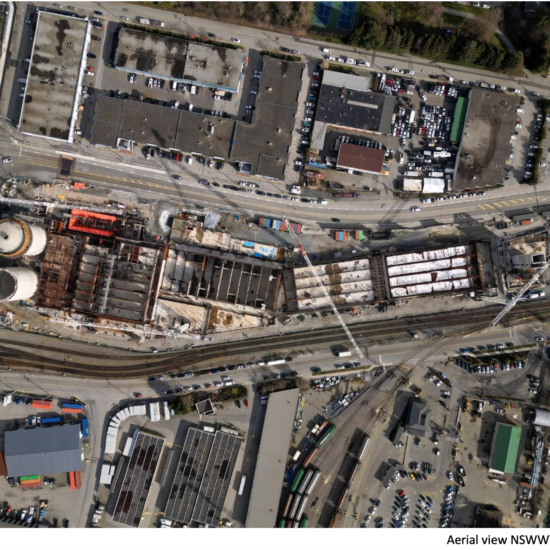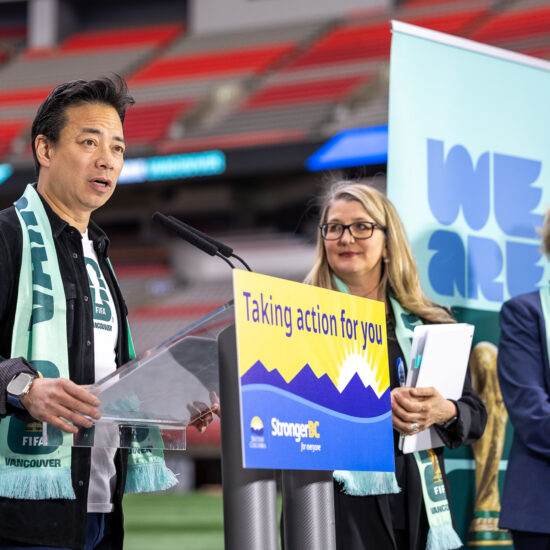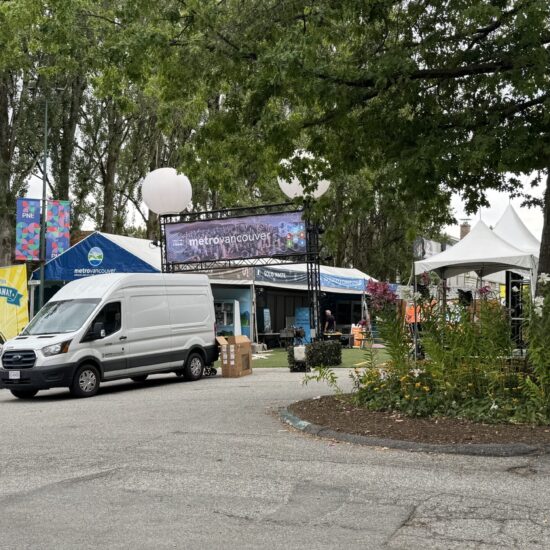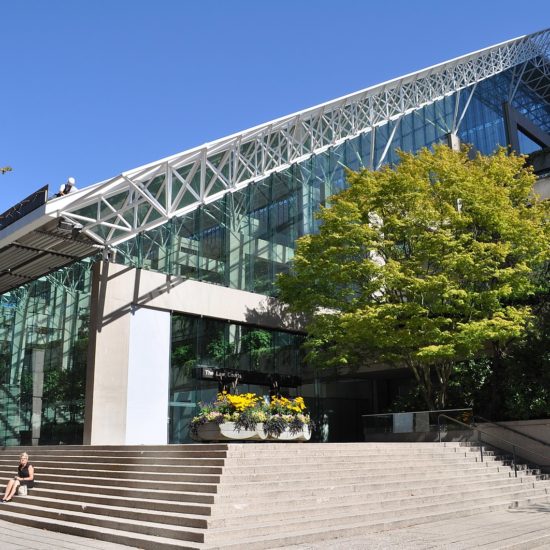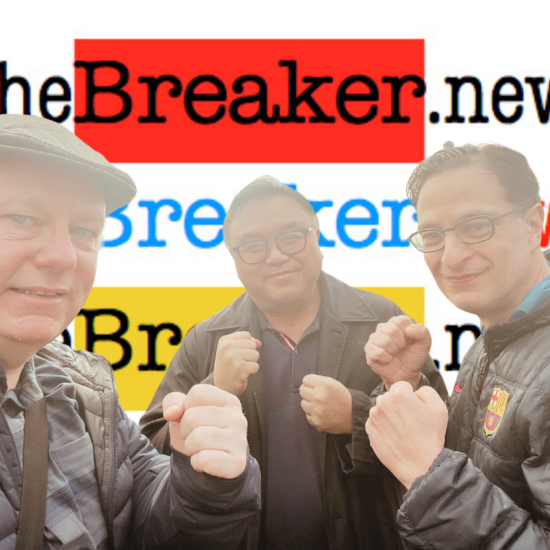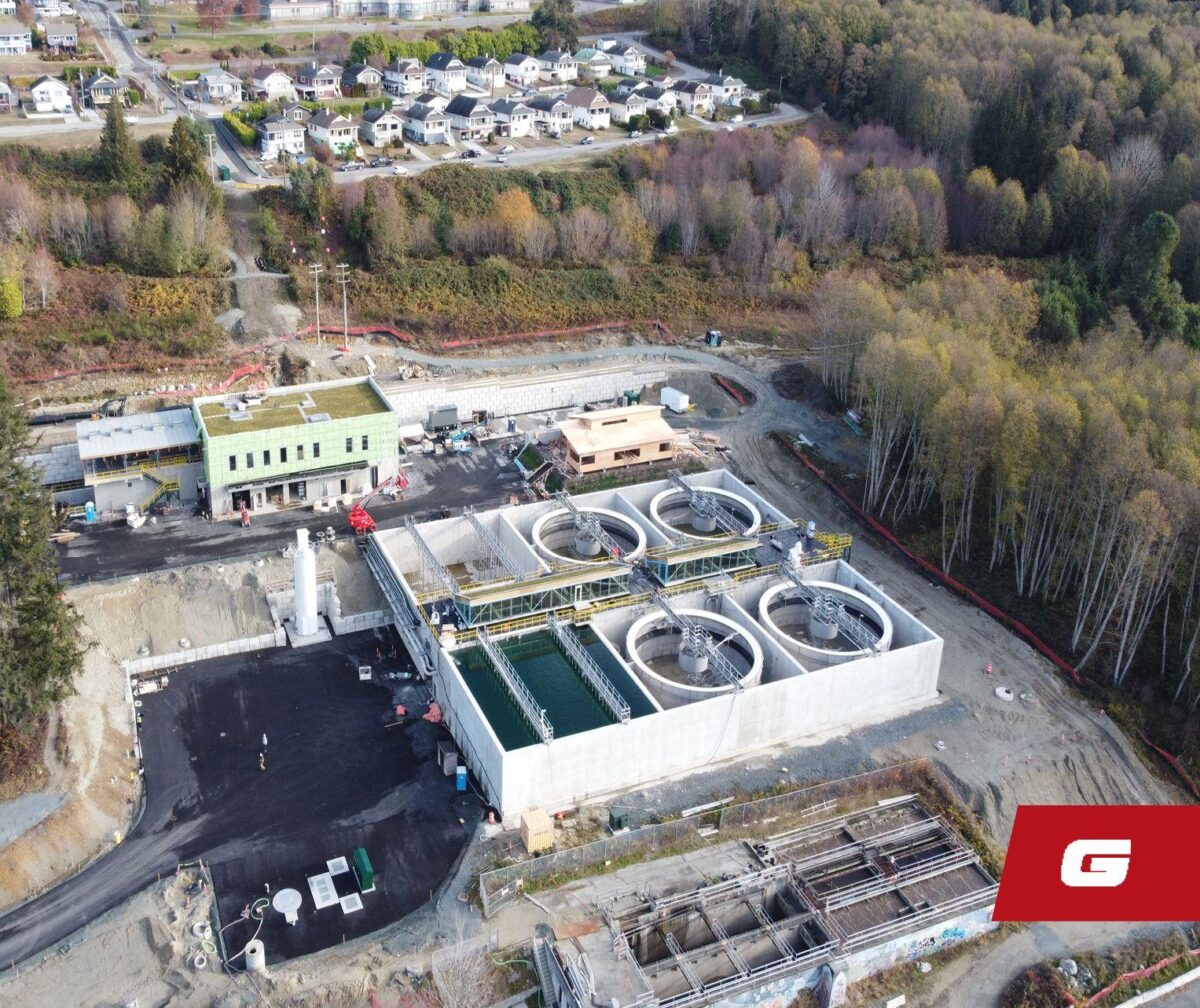
Bob Mackin
The Sunshine Coast city debating a name change just got a bigger problem on its hands.
The builder of City of Powell River’s 2023-completed sewage treatment plant filed a lawsuit April 2 against city hall for more than $1.4 million owing on two contracts and it wants a judge to declare a $19.37 million lien against the project.
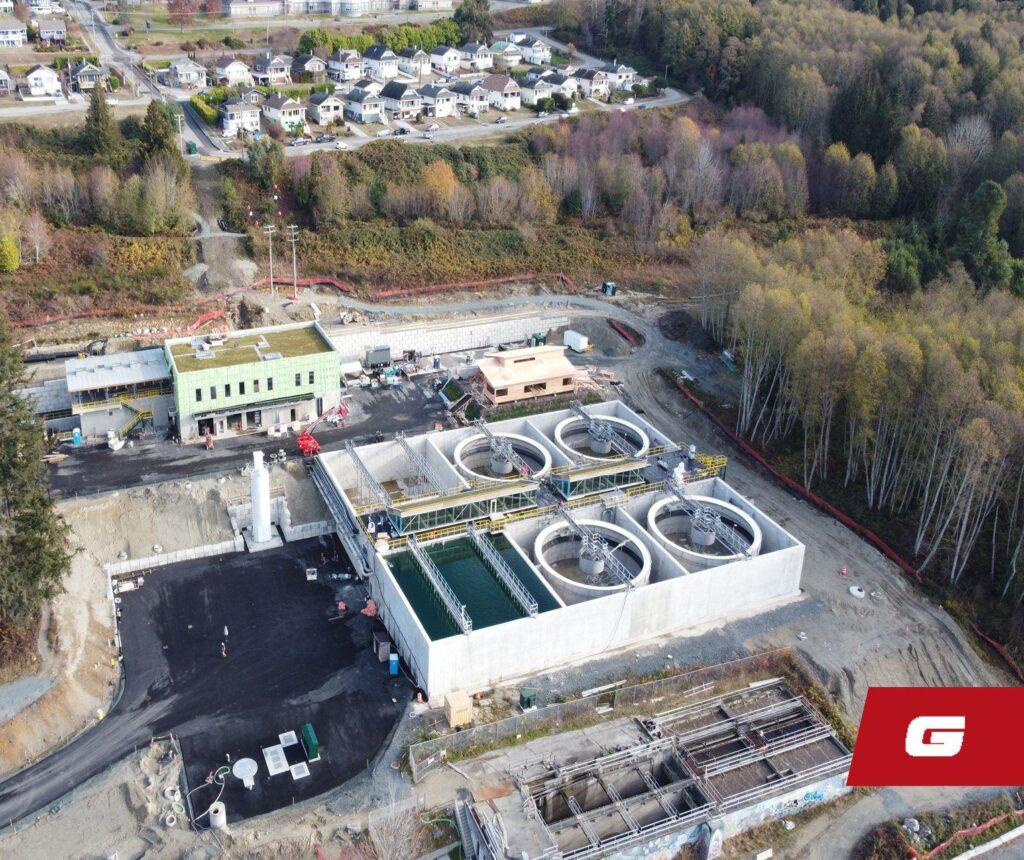
Powell River wastewater treatment plant (Graham Construction)
Lawyers for Graham Infrastructure filed the breach of contract and negligence claim in B.C. Supreme Court in Powell River, naming the city, contractor Associated Engineering (B.C.) Ltd. and subcontractors Koers and Associates Engineering Ltd. and WSP Canada Inc. as defendants. Graham also seeks general and special damages, interest and costs.
Graham’s court filing said the Powell River Consolidated Wastewater Treatment Plant was hindered by incomplete designs and excessive changes, extra work, delays and unpaid invoices. The allegations have not been tested in court. The defendants are expected to respond within the next three weeks.
The sewage treatment project was originally estimated in early 2018 to cost $30 million. The project budget more than doubled and, in 2019, the federal and B.C. governments combined for a $55.73 million grant. The price tag ballooned to $100 million last year.
The contentious 2021 request from the Tla’amin First Nation to change the city of 14,000’s name has overshadowed the sewage plant overruns. Namesake Israel Wood Powell, B.C.’s first superintendent of Indian affairs from 1872 to 1889, was known as a proponent of Indian residential schools and opponent of the potlatch ceremony.
The Graham court filing said the city hired Associated Engineering in October 2017 to design the plant on city land. Three years later, in October 2020, the city contracted Associated for project management and construction administration. In turn, Associated subcontracted Koers and WSP, and issued invitations to tender for the plant construction in December 2020 and the conveyance lines and associated linear works in June 2021.
Graham was the successful bidder on both and signed contracts in June and September 2021, totalling $61 million. It agreed to supply labour, equipment, and materials to construct the project in accordance with Associated-prepared designs and specifications.
The lawsuit said that Graham relied on Associated’s “express or implied representations” that the tendering documents “reflected the best information that Associated could provide” about the project, including all relevant geotechnical and archaeological information. Graham said the tendering documents also said the lands were capable of open excavation to seven metres below ground and that no further geotechnical investigation was required to assess the ability to excavate till soil.
Graham’s lawsuit said it began the work “with the reasonable assumptions that the projects were each fully-designed, constructible, and ready to be built. However, the design for the projects was not sufficiently developed, leading to significant changes to the scope of Graham’s work on the projects.”
The city issued change orders “in the first instance liberally and with impunity, requiring Graham to undertake an excessive volume of changed or additional work without advanced agreement on the appropriate adjustment” to the contract price or time.
“In further breach of its contractual duty of good faith and honest performance, the city knowingly misled Graham by making repeated assurances to Graham that it would be treated fairly in respect of compensation for the [changes] and encouraging Graham to proceed with the changed work on the basis of those assurances in circumstances in which there was no advanced agreement on the total amount to be paid for directed changes,” Graham claimed.
The lawsuit was filed just 11 days after Metro Vancouver revealed that the North Shore Wastewater Treatment Plant in North Vancouver would cost $3.86 billion to complete by 2030 — 10 years later and more than $3.1 billion higher than originally budgeted.
Metro Vancouver fired the sewage plant’s original designer and builder Acciona in early 2022. The Spanish company sued for $250 million and Metro Vancouver responded with a $500 million countersuit.
Support theBreaker.news for as low as $2 a month on Patreon. Find out how. Click here






